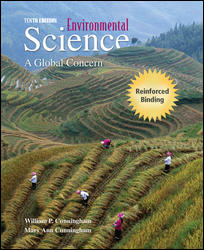1 A) typical of many islands – a spherical piece of earth surrounded by water. B) an elongated island formed by a ridge of volcanoes. C) an expansive, wide island with low topography. D) a thin, low- elevation ring of land with a big lagoon in the middle. E) a crescent-shaped island with a steep cliff on one side. 2 A) None – there are not habitable areas visible. B) Almost none – there is very little habitable area on the island. C) About half of the island is habitable. D) Almost the entire island is habitable. E) The entire island is habitable, except for the beaches. 3 A) The major highway of the town B) An airstrip for planes C) The central government building of the island D) A dirt road E) A very long plaza for community events 4 A) Plane landings would be a lot trickier. B) Planes would no longer be able to land, leaving only boats to ferry people and materials to and from the island. C) Plane landings and departures would have to be timed with the low tides. D) It would not affect travelers significantly. 5 A) 1000 km, 3300 km to Australia B) 3000 km, 1000 km to Australia C) 500 km, 1500 km to Japan D) 750 km, 2000 km to Japan E) 1250 km, 3000 km to Hawaii





